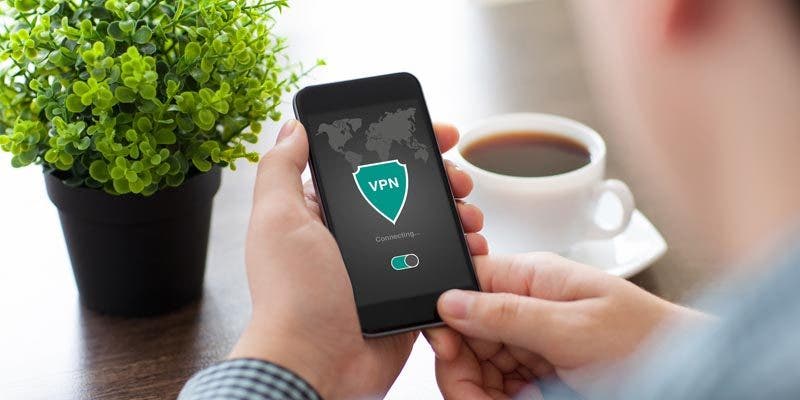Everything You Need to Know About VPNs
If you are reading this blog post via a virtual private network, or VPN, you’re probably familiar with the added online security it offers. If you’re unfamiliar with VPNs, this article is for you — because people who use the internet should consider using a VPN.
During the past several years, it’s become increasingly apparent that no matter what we do online, someone somewhere is watching — tracking the sites you visit, items you buy, videos you watch, etc. The reason for doing so could be relatively innocuous, such as customizing the ads you see so they appeal to your interests. Sometimes they have a more malicious goal, like stealing your personal or financial information.
If you’re on a public Wi-Fi network at a mall, in an airport or coffee shop, you could be putting your device and personal data at risk. Using a VPN can help keep your online activity private.
How a VPN Works: The Simple Explanation
Whether your company has a VPN service so employees can securely access company data remotely or you’ve got a VPN service for your personal online activity, they generally work the same.
Once you’ve downloaded and installed the VPN app (also called a VPN client), you use it to connect to your VPN service when you want to go online. The service then encrypts your identifying information before sending you to the internet, so your internet service provider (ISP) will only see encrypted data. Your ISP will not be able to see the websites you’re visiting or provide those details to commercial or governmental organizations looking for that information.
Your identity will also be shielded from the websites you visit, as they won’t be able to see your computer’s unique IP address — they’ll only see the IP address of the VPN server you’re using.
Protection on Public Wi-Fi
Using a VPN service is particularly helpful when using public Wi-Fi networks. While convenient, public Wi-Fi networks can often be unsecure. There’s also the risk of spoofed Wi-Fi networks. That’s when cybercriminals set up a phony free Wi-Fi network where you would expect to find a real one, like an airport, shopping mall, etc. When a device connects to this fake network, the information transmitted can be intercepted and stolen.
By logging on through a VPN, all the data sent or received by your laptop, tablet or smartphone will be encrypted, making it unusable and worthless to any bad actors who try to intercept it.
Don’t Be Tempted by Free VPNs
When researching potential VPN services, it might be tempting to consider one advertised as “free”, but such offers can be problematic. After all, it costs a lot of money to set up and maintain a service like VPN and the funding has to come from somewhere. Free is never really free — and sometimes the costs can be very high.
While some legitimate providers offer a trustworthy VPN that’s free, those are typically a kind of free trial. The idea is to give you a taste of the benefits but limit the capabilities, so you’re willing to pay for an upgrade.
On the unscrupulous end of the spectrum, some free VPN services are set up to harvest your data — the exact opposite of what they are supposed to!
The moral: a trustworthy, effective VPN is worth paying for and it doesn’t have to be expensive, especially compared to the cost of dealing with identity theft.
End-User Tips
- Make sure the VPN license you purchase supports all your devices simultaneously. Install the VPN on your desktop, laptop, phone and tablet so that you are protected everywhere. Some licenses support up to five devices simultaneously.
- Learn how to tell the VPN is running. There’ll be an icon on your laptop somewhere and your phone will probably display “VPN” next to the wireless icon.
- Configure your VPN to start automatically when the device starts. There’s no point buying one if it is not running.




